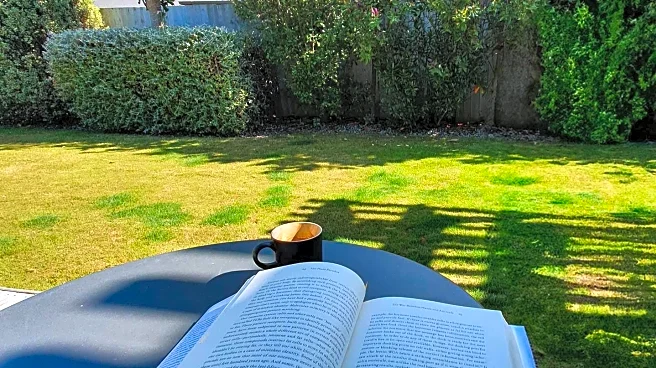What's Happening?
Ecologist Mark Easter has released a book titled 'The Blue Plate: A Food Lover’s Guide to Climate Chaos,' which explores the environmental impact of food choices. Easter, who has a background in carbon
cycling and greenhouse gas accounting, uses the framework of a dinner party to discuss the carbon emissions associated with various foods. He highlights the significant emissions from shrimp farming due to the destruction of mangrove wetlands and advocates for plant-based diets as a means to reduce individual carbon footprints. Easter also discusses the benefits of regenerative agriculture, which can increase soil carbon and improve yields on degraded lands.
Why It's Important?
The book underscores the role of food systems in contributing to greenhouse gas emissions, which account for a significant portion of human-caused emissions. By promoting plant-based diets and regenerative agriculture, Easter suggests practical steps individuals can take to mitigate climate change. This approach not only addresses environmental concerns but also offers economic and ecological benefits to farmers. The emphasis on reducing meat consumption and choosing low-carbon animal proteins like mollusks aligns with broader efforts to combat climate change through sustainable food practices.
What's Next?
Easter's book encourages readers to adopt more sustainable eating habits, such as consuming seasonal and locally sourced foods. The discussion around regenerative agriculture may influence policy and farming practices, potentially leading to increased support for sustainable farming initiatives. As awareness grows, consumers and policymakers might push for more transparency in food labeling, highlighting carbon footprints and sustainable practices.
Beyond the Headlines
Easter's work highlights the ethical dimension of food choices, encouraging a shift in consumer behavior towards more environmentally friendly options. The book also touches on the cultural significance of food and its potential to connect individuals to broader environmental issues. By framing climate change in the context of everyday choices, Easter aims to make the issue more relatable and actionable for the general public.









